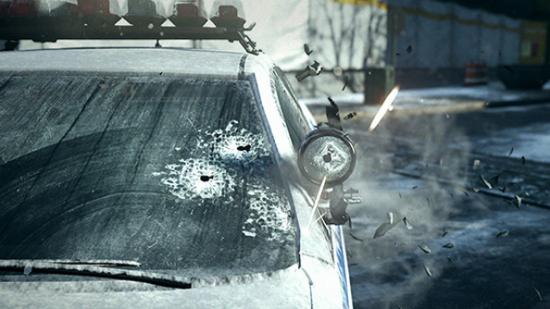Callooh callay, we’re on track for an at least half-decent day. In the time since its coo-inducing E3 introduction, The Division has gone from out-of-reach apparent console exclusive, to distant prospect, to this: a “fully-fledged” game for computers, every bit as PC as, I don’t know, your desktop, or that Plod fella.
There’s something you should know about The Division, that’s both cause for mild concern and prompt for approving nods. Despite appearances, it’s not developed by any of Ubisoft’s core Clancy teams in Montreal, Paris or Toronto. Instead it’s being built by Massive Entertainment – a Ubi-owned studio weaned on real-time tactics games like Ground Control and World in Conflict.
They’ve relatively unproven in the open-world action sphere, despite stints on both Far Cry 3 and Assassin’s Creed: Revelations. But with any luck, there are two upsides to their strategy pedigree: a real tactical edge to The Division’s multiplayer teamwork, and a deep-set understanding of PC game production.
“As you know, Massive has its roots in PC development,” wrote the developers in a new blog post. “We are working hard and we want to make sure that we have a very high quality experience on PC.
“You can be sure that our PC version won’t be a port, but a fully-fledged, optimized version! We want to create the best game possible regardless of what platform you play on.”
The Division is (I think) Ubi’s first big-hitter to leave the current console generation behind – allowing its PC version off the technical leash. Expect a lighting and particle system inspired by film techniques, melting snow, and an impressively procedural destruction system.
“Thanks to [new engine] Snowdrop, we ended up with the most realistic destruction system to date,” said Massive. “It reacts differently depending on the physical forces at play. For example, when glass shatters or wood splinters, it will mimic reality like you’ve never seen before.”
Never. Seen. Before. Big words. Better watch this, and let us know where you land on the scepticism chart in the comments:
Thanks, Eurogamer.
